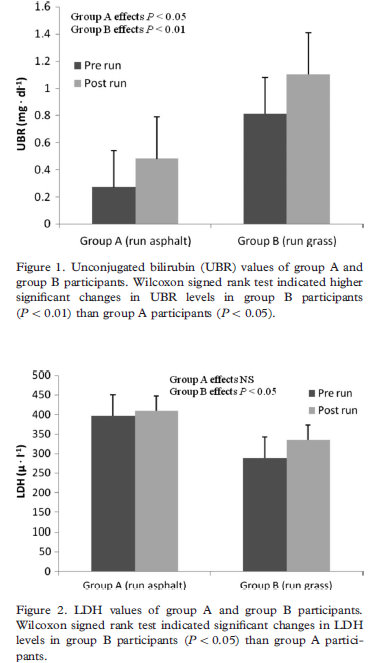THANK YOU FOR VISITING SWEATSCIENCE.COM!
My new Sweat Science columns are being published at www.outsideonline.com/sweatscience. Also check out my new book, THE EXPLORER'S GENE: Why We Seek Big Challenges, New Flavors, and the Blank Spots on the Map, published in March 2025.
- Alex Hutchinson (@sweatscience)
***
A new follow-up to the famous Marshmallow Test study on delayed gratification has just been published. Back in the 1960s, researchers tested a group of pre-school children on how long they could resist the temptation of an immediate reward (e.g. a marshmallow) in favour of a “larger, later” reward (e.g. two marshmallows). They followed these kids for decades, and found that the kids who were able to hold out the longest ended up less vulnerable to outcomes ranging from obesity to divorce to crack cocaine addiction.
The newest update, just published in Proceedings of the National Academy of Sciences (full text freely available here, press release here), with the subjects now in their 40s, confirms that the kids who were “high delayers” are still “high delayers,” and the kids who were “low delayers” are still “low delayers.” For the first time, they used brain scanning to determine that the high delayers showed greater activation in the prefrontal cortex while the low delayers had greater recruitment of the ventral striatum. This may reflect the differing use of of different “cold” and “hot” modes of cognition in choosing between competing impulses.
Anyway, I’m not going to go into great depth about the neuroscience here (as noted above, those who are interested can read the full paper freely). What caught my attention was the following quote in the press release:
“This is the first time we have located the specific brain areas related to delayed gratification. This could have major implications in the treatment of obesity and addictions,” says lead author Dr. B.J. Casey, director of the Sackler Institute for Developmental Psychobiology at Weill Cornell Medical College and the Sackler Professor of Developmental Psychobiology.
One of the interesting debates that I’ve become more attuned to in following the blogs of people like Yoni Freedhoff and Arya Sharma is the tendency to ascribe moral failings — a lack of willpower and unwillingness to make the “right” choices — to obese people. Dr. Sharma frequently argues that “Eat Less, Move More”-type advice is useless for losing weight, because it fails to understand the “countless ways in which the psychoneurobiology, energy physiology and metabolism in anyone who has lost weight” drive you to regain that weight.
So in this picture, does increased power of delayed gratification have any role in treating or avoiding obesity? Or are the biological imperatives too strong for anyone’s self-control? Dr. Sharma had a very interesting post a couple of weeks ago about the role of personal choice in weight loss, responding to a recent paper in the Journal of the American Dietetic Association. He doesn’t reject the role of impulse control in weight loss — in fact, he suggests it should be considered:
Recognising and fully acknowledging how the brain’s neural circuitry that underlies these behaviours interacts with (and is thus ultimately responsive to) environmental situations and cues can perhaps provide a far more realistic and effective counseling strategy.
Of course, losing weight and avoiding weight gain in the first place are two distinct questions — and in the long term, any success we have in tackling society’s growing levels of obesity will probably come from helping future generations avoid obesity in the first place. The Marshmallow Test data does tell us something interesting: that you can predict who’s most likely to become obese based on tests of brain function in pre-school. That has nothing to do with resting metabolic rate, aptitude for sports, or even what they’re being fed at home.
Obviously, this trait isn’t the root of the problem. Presumably humans have always been born with varying degrees of delayed gratification; it’s only in our modern society that low delayers are at risk of obesity. This is consistent with the idea of an “obesogenic environment” — a world with a copious oversupply of calorie-dense food, convenient labour-saving devices always available, ubiquitous advertising to tempt us into taking the first marshmallow.
But still… it suggests that choices matter. I realize this starts to sound like a moral judgement (i.e. obese people must have made the “wrong” choices), but I don’t mean it that way. In fact, the Marshmallow Test tells us these choices are, to some extent, hardwired into us. But by acknowledging the role of choices, and understanding how and why the “wrong” choices are made, perhaps we can increase our odds of making the right choices. Dr. Sharma suggests a few ways this might work in the post I quoted from above. Another option: the idea of “brain training” is in disrepute right now, partly because it was so dramatically overhyped and oversold a few years ago, but maybe it’s something to consider. It’s a topic that comes up (peripherally) in the Jockology column I just wrote for next Monday’s Globe, and I’m looking forward to seeing more research on it.

